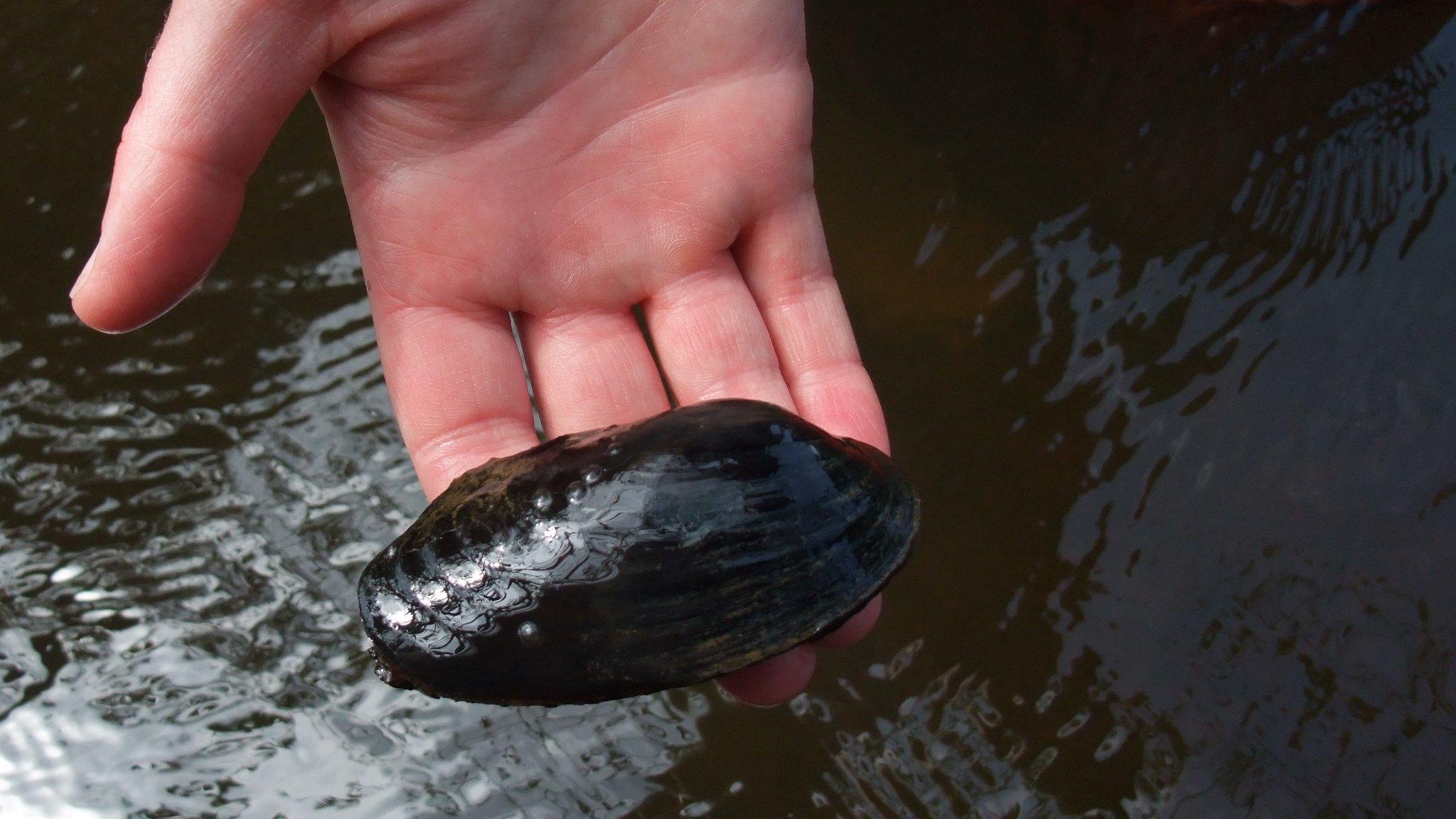Critically endangered pearl mussels recovering
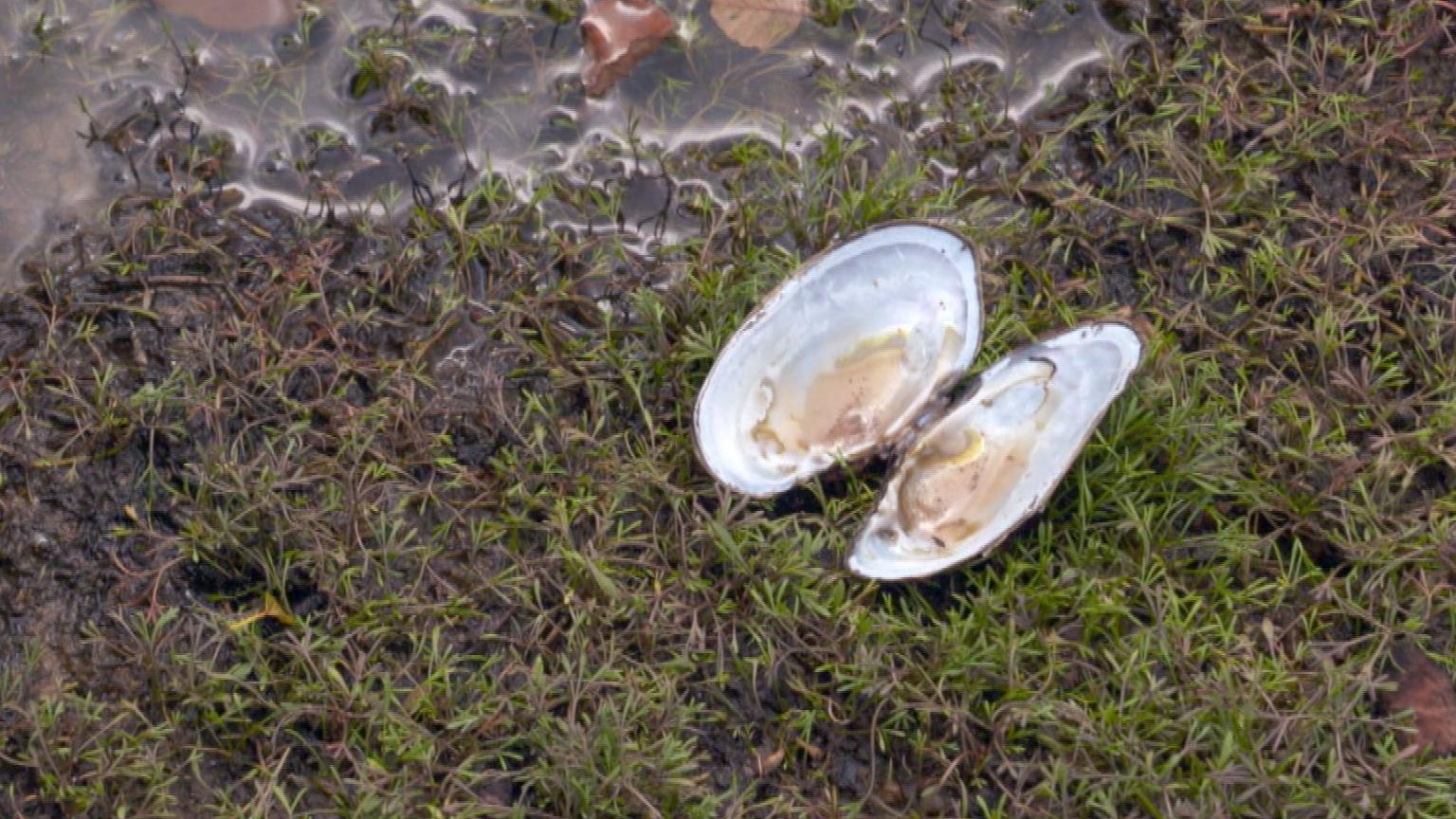
Natural England said numerous projects to boost pearl mussels across the region have been successful
- Published
A multimillion-pound reintroduction programme to help endangered pearl mussels has been hailed a success by a conservation organisation.
Natural England invested £13m in targeted projects, including boosting freshwater pearl mussels in Cumbria, Northumberland, Tyne and Wear and Durham.
A single adult mussel can filter 50 litres of river water a day and they remove bacteria that threaten aquatic ecosystems.
Ginny Swaile, of Natural England, said the pearl mussel project is "proving that saving endangered species and improving water quality are not separate goals".
Mussels, which can live for more than half a century, have been reintroduced across the north of England and Cumbria which hosts 90% of the wild population.
The location of their whereabouts is kept secret by conservation groups because of the threat of them being harvested for their pearls.
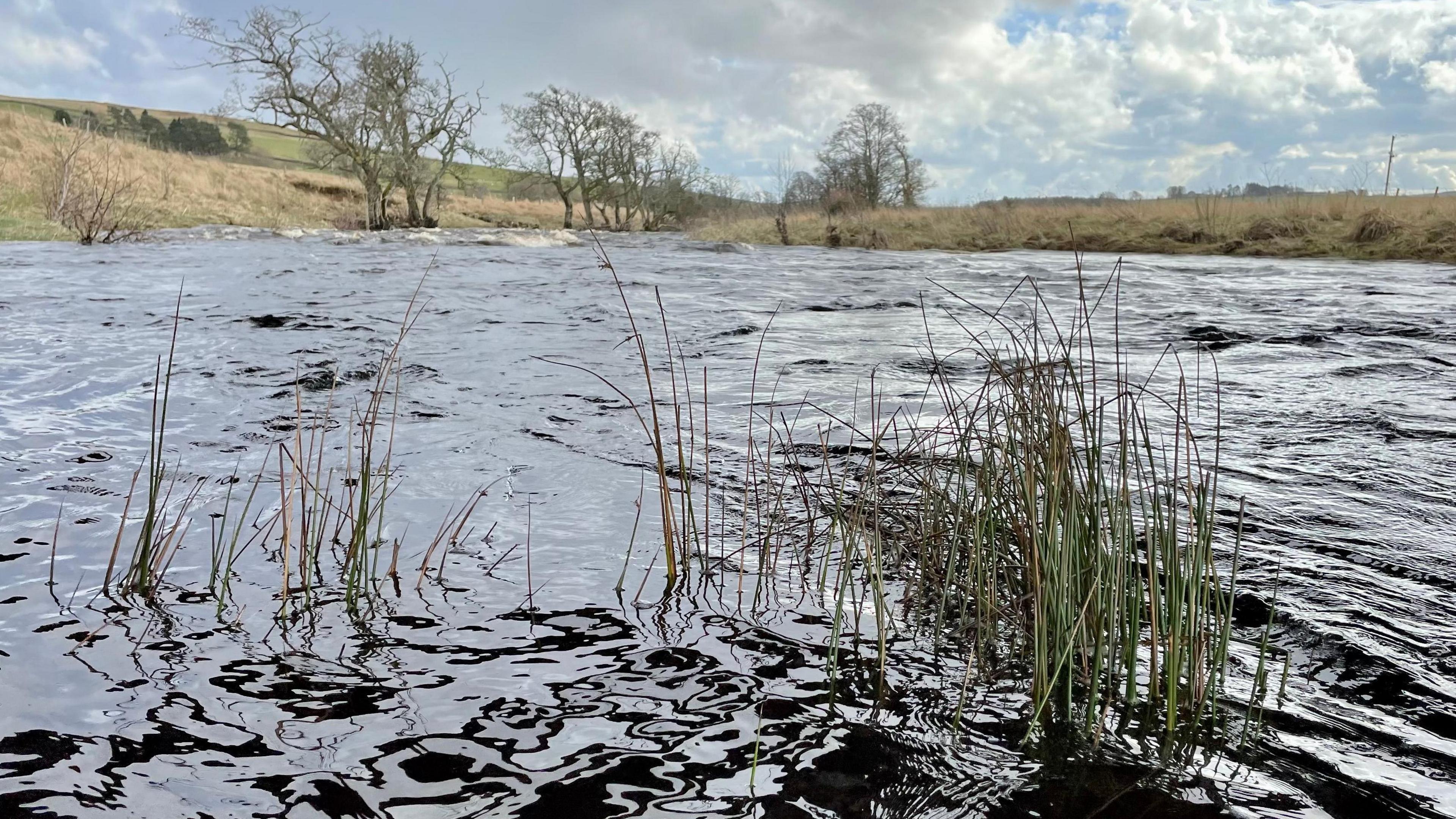
There are only 423,000 fresh pearl mussels left in the wild in England, the conservation organisation said
The MaST (Margaritifera, Salar, Trutta) project on the River Rede, a tributary of the River Tyne, has an innovative way of reintroducing pearl mussels to a waterway.
Ms Swaile said: "The project in the Rede catchment exemplifies innovative species recovery in action.
"By creating wetland habitat and addressing agricultural pollution sources, we're not just saving critically endangered mussels - we're building the foundation for thriving salmon and trout populations."
Larvae mussels attach themselves to the gills of salmon and trout during a crucial stage of their lifecycle.
Conservation projects are also ongoing at the Wansbeck, Coquet, Till Breamish and Tweed rivers.
Other critically important species like the European eel, Atlantic salmon, brown trout, river lamprey and otter are also benefitting from cleaner waters.
Follow BBC North East on X, external and Facebook, external and BBC Cumbria on X, external and Facebook, external and both on Nextdoor and Instagram, external.
Get in touch
Do you have a story suggestion for BBC North East & Cumbria?
Related topics
More stories like this
- Published14 September 2023
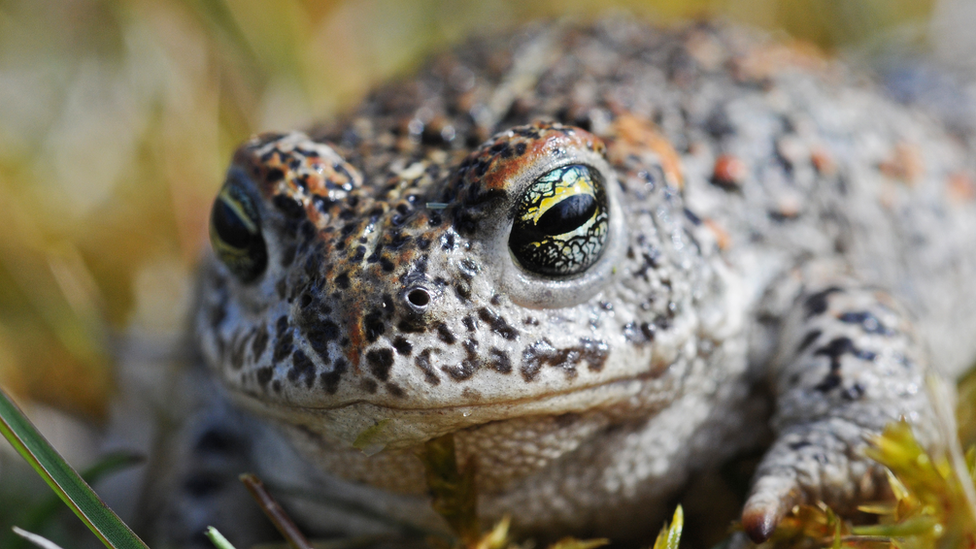
- Published6 June 2023
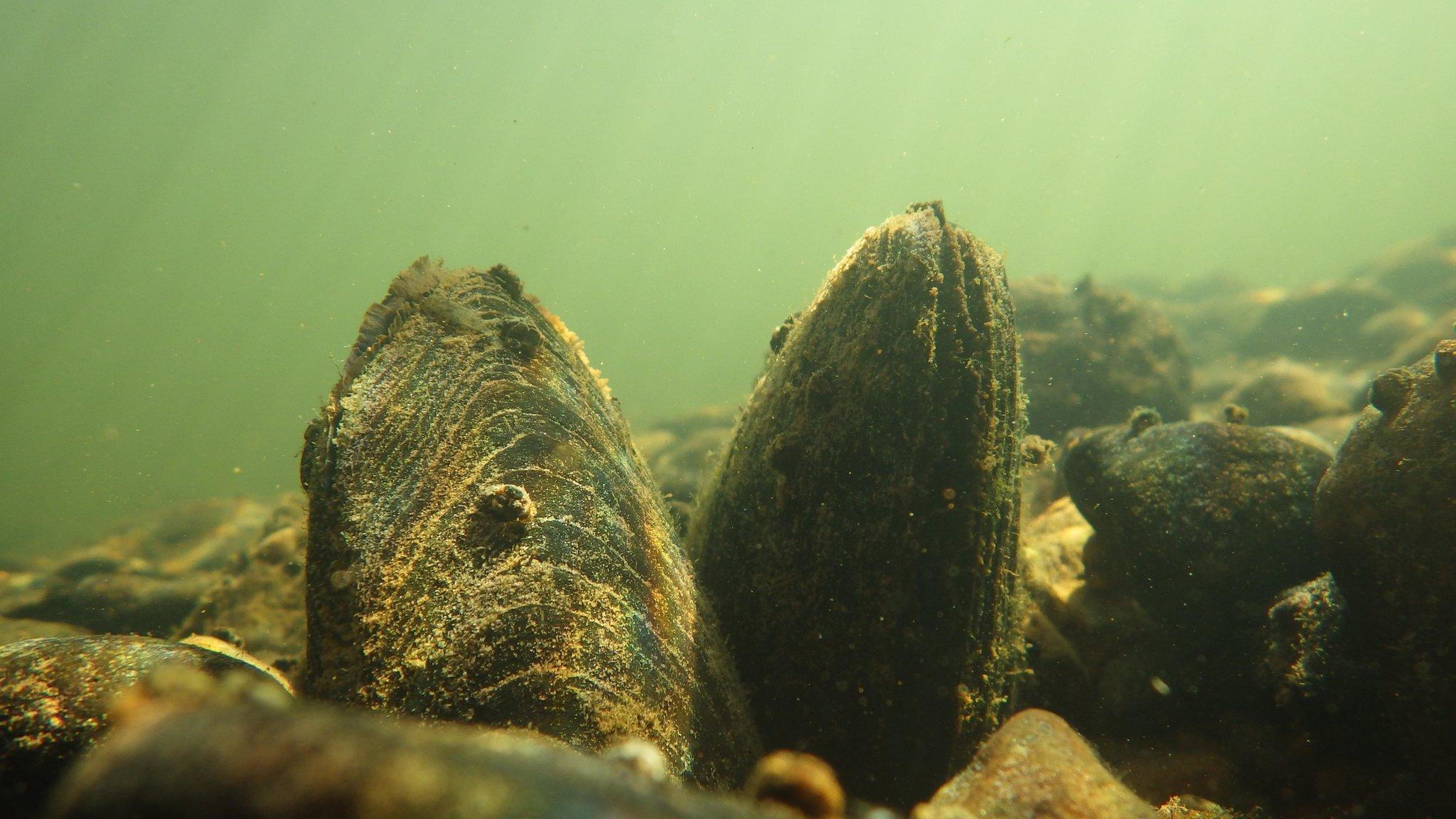
- Published17 July 2015
